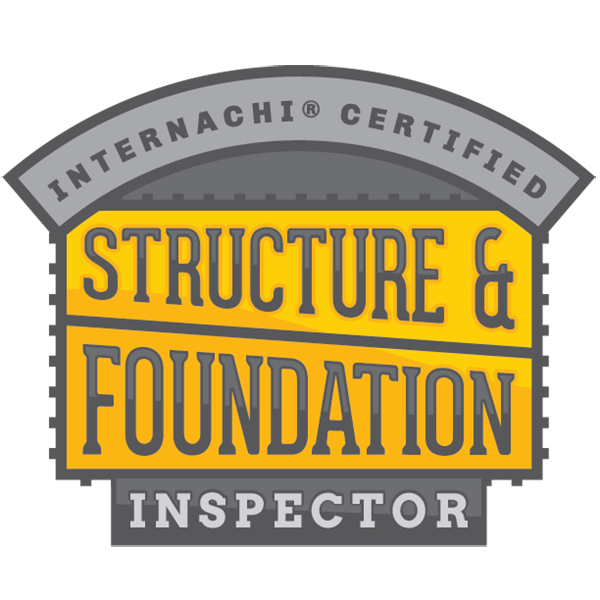Are you looking to purchase a home? If so, you can begin preparing today. To make your experience excellent you’ll want to gather a team of pros who are experts in their industry and who you enjoy working with. Just because your friend recommends a certain guy or gal to handle any portion of your real estate needs, doesn’t mean you’ll mesh well with him/her. We recommend you assemble your team as early on in the real estate purchasing process as possible. Do some research on each individual, don’t hesitate to interview them, develop tough interview questions, and check online reviews. After all, your team works for YOU, the purchaser of the property!
#1 - Determine if it’s the right time to purchase.
Budgeting for a Home is Multi-Faceted - Know Your Stuff!
Examine your finances to determine how much house you can afford. Budgeting is key to making the entire process go smoothly. Be careful not to let your appetite for the perfect home drive your budget. Stay objective.
Get Pre-Qualified, Find a Stellar Lender
Find a mortgage lender. Remember, this is the first player on your team. You’ll be asked some tough questions, and you may be delivered lousy news, but keep in mind your lender is on your side. She wants this to be successful for you!
Debt-to-income Ratio and Your Mortgage Payment
“One of the first factors a lender will analyze is your debt-to-income ratio or DTI. Lenders use this measurement to ensure that you’ll have enough income to cover both your new mortgage payment and any existing monthly debts such as credit card, auto loan, and student loan payments. What is a good debt-to-income ratio? Generally, most lenders want your debt-to-income ratio, including your anticipated new monthly mortgage payment, not to exceed 36 percent.” (Source)
Down Payment Requirements Vary
Depending on the type of loan you qualify for you could be looking at anywhere between a zero to 20% down payment of the financed amount. Don’t let this sneak up and bite you! Before approaching a lender, do your research on the various types of mortgage financing you qualify for. This can vary from state to state and can even vary for rural versus urban properties, and even property types. Here’s a great resource to launch your research of types of loans for homebuyers.
What is Mortgage Insurance & Why It’s Required (Sometimes)
“Mortgage insurance lowers the risk to the lender of making a loan to you, so you can qualify for a loan that you might not otherwise be able to get. Typically, borrowers making a down payment of less than 20 percent of the purchase price of the home will need to pay for mortgage insurance,” explains ConsumerFinance.com. Needing a deeper dive into PMI? Check out this source, which provides strategies for removing, reducing, and refinancing PMI and MIP.
Budgeting Repairs, Replacements, and Treatments into your Monthly Home Budget
Here’s where we all miss the mark. It’s exciting to purchase a new home and none of us want to consider the possibility of things breaking. But the reality is, everything will break eventually.
Tip #1 - pay close attention to your home inspection report. Never again will you receive such an in-depth review of your home by an expert, unless you purchase a homeowner’s inspection down the road. Read it carefully, and read it again. A good home inspection report will leave clues when it comes to how many repairs, replacements, and treatments you’re in for.
Tip #2 - mitigate that list of repairs by asking for the seller to remedy those defects prior to the contract closing. This is called the TRR Process, you can learn how to nail the TRR process here.
Tip #3 - use your home inspector as a resource to determine the “cost to cure” the defects listed within your home inspection report. A seasoned home inspector will be able to help you navigate creating a budget for curing those defects that don’t get fixed through the TRR process. Before signing the final contract be sure to include a repairs budget when determining your monthly mortgage budget.
#2 - Find a Realtor that Suits Your Needs
Finding a real estate agent can feel overwhelming, there are so many to choose from, and a few dozen strategies for finding one. Some might say to always go with the top producing agents because they’ll be well experienced. While others say to find someone fresh as they’ll be more enthusiastic, and have more personal time for you.
Our advice is to ask practical questions and choose someone you “click with”. You definitely want to enjoy working with your agent, and their team, if they have one. Most realtors have a dedicated FB business page for their potential clients to get to know them and engage with them. It’s okay to “stalk” a few Realtors on Facebook to narrow down your list of potentials.
We’ve had the blessing of working with nearly 500 realtors across Oklahoma and Iowa. Here’s a great list of Realtors to get you started if you are looking for a Realtor in the Tulsa, OK area.
#3 - Find a Home That Suits You, But Get Feedback
This is the fun part, right? You get to visit loads of homes, imagine your family in each one, walk through the nail-biting process of making an offer, wade through negotiations until you finally discover terms which you and the seller both agree.
Be organized during this process. Keep a list of the homes you visit along with photos you can reference at a later time, as well as a list of the top five favorite and top five least favorite aspects of each house. If you’re viewing a lot of properties it can be difficult to remember specifics from each property.
Be patient while viewing listings. It can feel like a high-pressure situation when you finally discover the property you want to make an offer on. It’s okay to ask if the seller has received, or is considering other offers.
Return to the properties you enjoyed the most with a trusted friend or family member, someone who will give unbiased feedback to help you make the decision on whether or not to give the seller an offer on the property.
#4 - Hire a Qualified Home Inspector
One thing your realtor should have on hand is a list of home inspectors to choose from. The more home inspectors your agent has worked alongside, the better. Visit the inspector online, browse their reviews, and interview them by phone. You’ll want to verify the inspector’s license is valid and up-to-date and that h/she is insured. For a deeper dive into the inspector’s experience and reputation, call the governing board to find out if the inspector has any outstanding claims against him/her.
Here are some interview questions to ask an inspection company:
Can I see your home inspection license and verification of your insurance coverage?
How long have you been licensed and how many inspections have you performed? Do you want someone who performs inspections as their full-time trade or their side-hustle? We recommend going with an inspection company equipped with a full staff and multiple home inspectors, like us!
How much will the inspection cost? Beware of inspectors who undercut the market, typically they aren’t delivering on value.
What does the inspection include? Not all inspectors offer the same services within each inspection package. Get very clear on what each inspector includes and excludes from the inspection package. For example, here’s a breakdown of each of our inspection packages.
How long will the inspection take? A good rule of thumb is about one hour for every 1,000 sq ft per inspector on the job. For example, if a home is 4,000 sq ft and there are two inspectors onsite, expect the inspection to take 2 hours.
Can I read the Home Inspection Agreement prior to scheduling? The purchaser of the home inspection and the inspection company is required by the state governing board, the educational institution, and the insurance company to agree and sign a home inspection agreement. This document is legally binding and serves to protect both parties.
Can I see sample home inspection reports? Comb through those reports for errors. An inspection report should be well organized, without grammatical errors, include lots of images, and stay within a home inspector’s scope of practice.
It’s vital to choose an inspector that communicates well. Your agent will agree that every home inspector is slightly different, every home inspection process is different, and even the reports from inspector to inspector are different. This is because every home is unique and no two inspectors have the same perspective.
#5 - Renegotiate the Contract
The goal of the home inspection is to reveal defects, empowering buyers to walk through the second round of negotiations. Following the inspection, you should, alongside your agent and home inspector assemble a TRR Report (treatments, repairs, and replacements). You’ll submit this report to the seller and her agent, and wait for a response on what items they are willing to remediate. You may even submit this report with a renegotiated price.
#6 - Get the Home Appraised
An appraisal and a home inspection are not the same. Whereas the inspector evaluates the “overall health” of the property from a physical, non-invasive perspective, the appraiser determines fair market value for the property based on tangible and intangible data. The purpose of the appraisal is to determine what the value of the home is using recently closed, comparable properties. The appraiser lets everyone know that you are paying a fair price.
This is often confusing for first time home buyers. Typically, the lender orders the appraisal on behalf of the home buyer once the contract is negotiated, usually following the TRR process. “Lenders often require an appraisal because they want to be certain that the home is worth its purchase price, and can be sold to cover losses if you default on your mortgage.” (source) Bare in mind that you are most likely paying for the appraisal, meaning you should have some control over who the appraiser is. You also have the power to negotiate who pays for the appraisal. Remember to always ask for a copy of the appraisal for your records.
#7 - Close on the Contract
Typically, the realtor will choose the closing agency. However, you as the buyer will be paying for the policy so you also have the right to choose the title company. We recommend asking your agent which title company he/she intends to choose and find out what their closing fees are. Compare their fees and customer service reputation against their competitors. After all, closing fees among title companies can vary by as much as $1,000. Your research might save you some serious cash, in the end.
There are several ways the closing costs can be negotiated and distributed between the buyer and the seller. Be familiar with these options and your negotiating tactics prior to beginning the home buying process. Here’s a great resource to learn more on closing costs.
Remember, Everyone Works for You
As a home buyer, it’s vital to keep control of the reigns during your home buying process. Each professional is being hired by you, and most likely being paid through you. You can walk through the process with as little, or as much control as you want. Stay empowered every step of the way. Ask loads of questions, and don’t hesitate to get second opinions.
Good luck!







